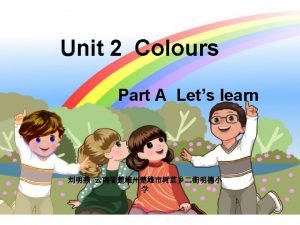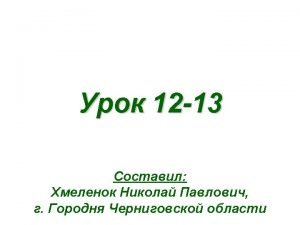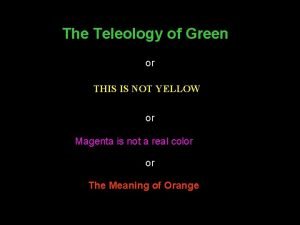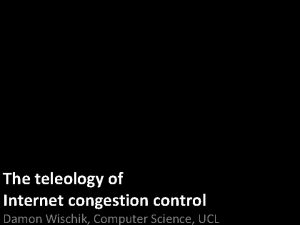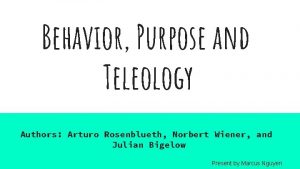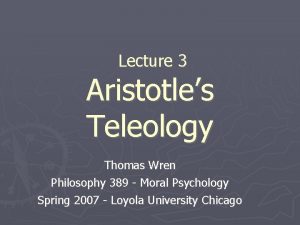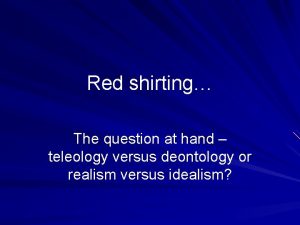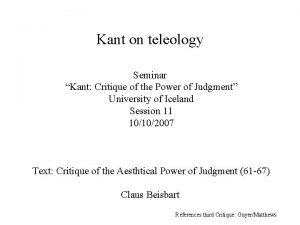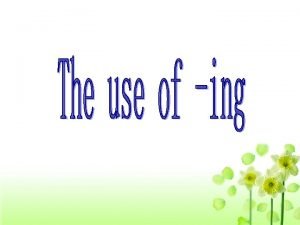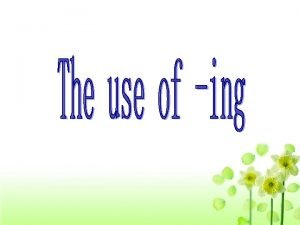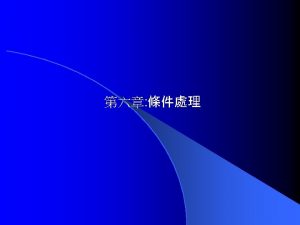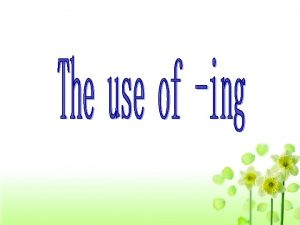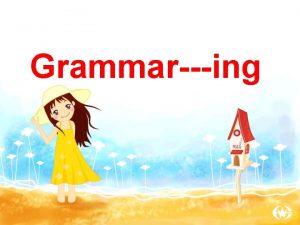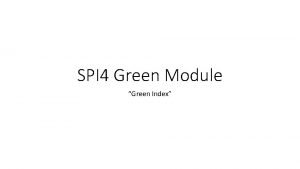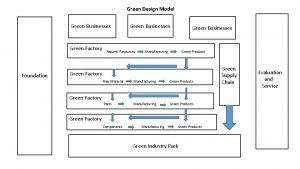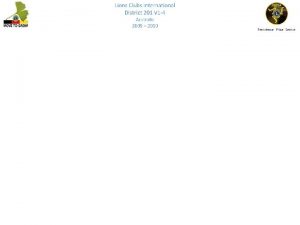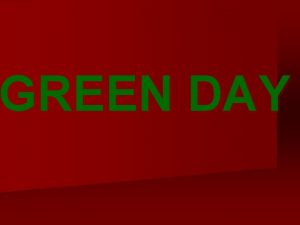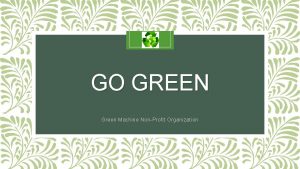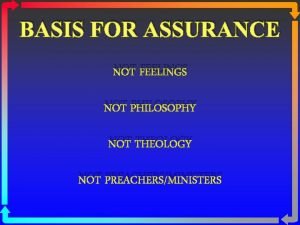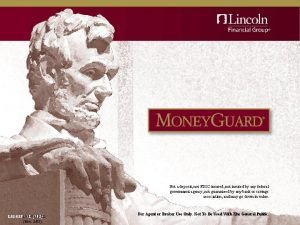The Teleology of Green or THIS IS NOT





























- Slides: 29

The Teleology of Green or THIS IS NOT YELLOW or Magenta is not a real color or The Meaning of Orange

The Teleology of Green The Story

Colors are the smiles of Nature Leigh Hunt, 19 th century poet

Oxford English Dictionary Teleology The doctrine or study of ends or final causes, esp. as related to the evidences of design or purpose in nature; also such design as exhibited in natural objects or phenomena. 1740 ZOLLMAN in Phil. Trans. XLI. 299 Teleology is one of those Parts of Philosophy, in which there has been but little Progress made. 1868 F. BUCKLAND in Bompas Life x. (1885) 224 This is the doctrine of Teleology: i. e. the doctrine that every organ is adapted to a special use. 1893 H. DRUMMOND in Barrows Parl. Relig. II. 1322 Darwin has not written a chapter that is not full of teleology.

THIS IS NOT YELLOW Philosophy

Color is our brain’s response to light. “Light” is a term that refers to a electromagnetic radiation. And electromagnetic radiation are waves of different energies that extend over a broad range: frequency, Hz 10 26 10 24 cosmic 10 22 gamma wavelength, nm 10 -8 10 -6 10 -4 10 20 10 18 X-rays 10 -2 1 10 16 10 14 UV 10 2 10 12 Vis 10 4 10 10 IR 10 6 10 8 Radio 10 8 10 6 10 4 10 2 Hz induction power 10 10 10 12 10 14 10 16 nm If the electromagnetic spectrum were a piano keyboard…. . the visible spectral region would be just one key!

Each of the “colors” of visible light has a corresponding wavelength between 400 to 700 nanometers (or nm). Light having a wavelength of near 565 nm will look yellow to most people. 400 450 500 550 600 650 700 750 565 nm Is this because the eye has a specific detector (or receptor) for 565 nm yellow light? And a different receptor for 450 nm blue light? And another one for 650 red-orange light? And so on, for every wavelength between 400 and 700 nm? Seems like that would be a LOT of different types of receptors. Nature is “smarter” —and more efficient—than that. Only three different receptors for visible light are used.

Beauty in the eye of the beholder Your eyes have only three color receptors (detectors) - the RGB cones (red-green-blue) It is the brain that interprets visible light as “having” color.

Yellow light is perceived by our eyes when two color receptors, Red and Green, are stimulated simultaneously. This is indicated on the diagram by the red and green arrows. It is the brain that interprets yellow light as “having” a yellow color.

“What about red-orange? ”, you say. “Red-orange light would also simultaneously stimulate the Red and Green receptors. See? ” Aaahhh…. . true. But look! The relative lengths of the arrows are different. The green arrow, i. e. G-receptor, is much less stimulated than the R -receptor. So, red-orange light is seen as different from yellow light due to the ratio of R and G response.

When the R receptor gets about the same signal as the G receptor, or R = G, yellow is perceived. When the R receptor gets a larger response the G receptor, something like R = 3 G, red-orange is perceived. It is the brain that interprets color.

THIS IS NOT YELLOW Philosophy

Is there a unique GREEN “out there? Note that there is no wavelength where only the “green” cones detect

Magenta is not a real color.

Magenta is a non-spectral hue.

Magenta is not a real color.

Maxwell’s Triangle Think of the saturated red and green colors on Maxwell’s diagram as vectors. Now, imagine “decomposing” these R and G vectors into the sum of the dashed arrows.

Maxwell’s Triangle See how two of the decomposed vectors that run along the right edge of the triangle are co-linear but point in exactly opposite directions? They cancel each other. This leaves the shorter vectors components these vectors have the same direction and point from yellow. They represent the yellow “product” from adding red and green.

Maxwell’s Triangle Blue + Yellow = White? ! Blue + yellow vectors point in exactly opposite direction and cancel to make white.


The Teleology of Green The Painting




The Difference Between Art and Science From this Munch painting of someone pained on a bridge, to jarring graphed impact in the paint. The search hands held to ears, the observer could scrape an orange is for the force of the scream. But the particles’ pry is micron speck. He could mount it on a slide, fine-tune too strong—they shock loose the paint molecules, in sound the fast beams that circle under parking lots and football demonstration of the uncertainty principle. The painting hangs; fields, prodded on by magnets’ handless shove, focus, for that Norwegian sky and harbor pick up the scream, beam is his craft, the stone particles (fancy calibrated stones) it into the observer’s skull. There, echoing, effect change. Roald Hoffmann, chemist, poet Nobel Laureate

The Scream Edvard Munch 1893

Anxiety Edvard Munch


The Difference Between Art and Science From this Munch painting of someone pained on a bridge, to jarring graphed impact in the paint. The search hands held to ears, the observer could scrape an orange is for the force of the scream. But the particles’ pry is micron speck. He could mount it on a slide, fine-tune too strong—they shock loose the paint molecules, in sound the fast beams that circle under parking lots and football demonstration of the uncertainty principle. The painting hangs; fields, prodded on by magnets’ handless shove, focus, for that Norwegian sky and harbor pick up the scream, beam is his craft, the stone particles (fancy calibrated stones) it into the observer’s skull. There, echoing, effect change. Roald Hoffmann, chemist, poet Nobel Laureate
 Teori jung psikologi kepribadian
Teori jung psikologi kepribadian Teleology in nursing
Teleology in nursing Categorical imperative example
Categorical imperative example Show me green
Show me green English 9 vocabulary unit 1
English 9 vocabulary unit 1 Frc control system
Frc control system Lernpyramide von green & green (2005)
Lernpyramide von green & green (2005) Green blue red yellow
Green blue red yellow Thế nào là mạng điện lắp đặt kiểu nổi
Thế nào là mạng điện lắp đặt kiểu nổi Các loại đột biến cấu trúc nhiễm sắc thể
Các loại đột biến cấu trúc nhiễm sắc thể Bổ thể
Bổ thể Vẽ hình chiếu đứng bằng cạnh của vật thể
Vẽ hình chiếu đứng bằng cạnh của vật thể Biện pháp chống mỏi cơ
Biện pháp chống mỏi cơ Phản ứng thế ankan
Phản ứng thế ankan Môn thể thao bắt đầu bằng chữ đua
Môn thể thao bắt đầu bằng chữ đua Sự nuôi và dạy con của hổ
Sự nuôi và dạy con của hổ Thiếu nhi thế giới liên hoan
Thiếu nhi thế giới liên hoan Chúa yêu trần thế alleluia
Chúa yêu trần thế alleluia điện thế nghỉ
điện thế nghỉ Một số thể thơ truyền thống
Một số thể thơ truyền thống Trời xanh đây là của chúng ta thể thơ
Trời xanh đây là của chúng ta thể thơ So nguyen to
So nguyen to Tỉ lệ cơ thể trẻ em
Tỉ lệ cơ thể trẻ em Tia chieu sa te
Tia chieu sa te Các châu lục và đại dương trên thế giới
Các châu lục và đại dương trên thế giới Thế nào là hệ số cao nhất
Thế nào là hệ số cao nhất Sơ đồ cơ thể người
Sơ đồ cơ thể người ưu thế lai là gì
ưu thế lai là gì Tư thế ngồi viết
Tư thế ngồi viết Bàn tay mà dây bẩn
Bàn tay mà dây bẩn



